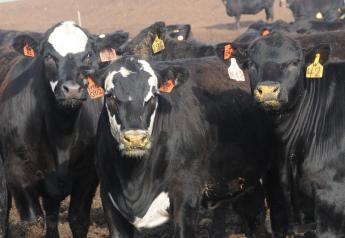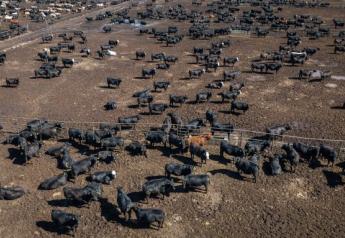Federal Grazing Fees Lowered For 2019

Federal grazing fees for 2019 have been lowered, according to the Bureau of Land Management (BLM). Fees for 2019 were set at $1.35 per animal unit month (AUM), down from $1.41. The new AUM fee is for both BLM and U.S. Forest Service (USFS) lands.
"The newly calculated grazing fee was determined by a congressional formula and takes effect March 1, 2019,” BLM said. “The fee will apply to nearly 18,000 grazing permits and leases administered by the BLM and nearly 6,500 permits administered by the Forest Service."
According to the agency, AUM and HM represent equivalent measures for use of public lands by "by one cow and her calf, one horse, or five sheep or goats for a month."
Bob Skinner, President of the Public Lands Council, said in a statement, “Ranchers across the West trust the formula and the process, which ensures fair and equitable access to forage on federal lands. With the fees in place for the 2019 grazing season, ranchers can focus on what they do every day: contributing to rural economies and serving as stewards of America’s natural resources.
The formula used for calculating the grazing fee was established by Congress in the 1978 Public Rangelands Improvement Act and has remained in use under a 1986 presidential Executive Order, according to the BLM. Under that Executive Order, the grazing fee cannot fall below $1.35 per AUM/HM, and any increase or decrease cannot exceed 25 percent of the previous year’s level.
“The BLM and Forest Service are committed to strong relationships with the ranching community and work closely with permittees to ensure public rangelands remain healthy, productive working landscapes,” said Brian Steed, BLM Deputy Director for Programs and Policy. “Fifty percent of the collected grazing fees deposited into the U.S. Treasury are returned to the Range Betterment Fund for on-the-ground range improvement projects. Portions of collected fees are also returned to the states for use in the counties where the fees were generated.”
The grazing fee applies to public lands administered by the BLM and USFS in 16 Western states — Arizona, California, Colorado, Idaho, Kansas, Montana, Nebraska, Nevada, New Mexico, North Dakota, Oklahoma, Oregon, South Dakota, Utah, Washington, and Wyoming.







